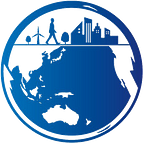From Architect to Engineer: A Career Change for Data Science Industry. #MemberInterview
## Interview with Ryoji Fujinami, Full Stack Engineer
Why did you switch from being an architect in Singapore to becoming an engineer?
I was born and raised in Singapore to a Japanese father and a Singaporean mother. After graduating from high school, I majored in architecture at Waseda University and then worked as an architect in my father’s company in Singapore for about five years.
The career change was triggered by the increase in office work and management tasks during the COVID-19 pandemic. Wanting to automate these tasks to focus on design, I joined a programming boot camp and found it fascinating. I loved creating things, was good at math, and felt programming suited me. That’s when I decided to become an engineer and switch to the IT industry. Initially studying for work led me to dive into a completely different world.
While job hunting in Japan, I couldn’t find a job that matched my expectations, as I was looking for a position where I could utilize my management experience and current skills, not just as an engineer.
How did you join us?
It was through a referral. Our CTO, is a friend from junior high school. While consulting him about my job change, he told me about the company.
Initially, I thought it sounded interesting, but as I understood the business and vision better, I became genuinely motivated to work there. I resonated with the vision of making the world a better place, and I felt that this company offered the fulfillment I was looking for. I was also pleased that everyone I spoke to during the interview process appreciated my previous experience and skills, which led me to decide to join.
What kind of work do you do as a member of the product team?
Currently, my work is about 20% programming and 80% management. When creating new features for “TERRAST for Enterprise”, I mainly handle upstream design and coordinate between departments to ensure smooth development.
Although I had no practical experience as an engineer, I adapted quickly once I understood the system and flow. My project management experience in architecture and my bilingual skills in English and Japanese have been beneficial. I am mostly self-taught in data science and programming, and I continue to study on my own while getting support from CTO and experienced engineers.
What do you find fulfilling and interesting about your work?
Our products evolve at an incredible pace. There are weekly updates, and it’s like “Oh, things have changed quite a bit” after taking a week off. One significant change in the past year is the user interface of “TERRAST for Enterprise,” which has become more user-friendly and aesthetically pleasing. It’s rewarding to see improvements and hear customer satisfaction.
My creativity and suggestions directly contribute to the product’s evolution. Understanding the deeper issues behind customer requests and proposing comprehensive solutions enhances the product further. I aim to deepen my understanding of both our products and customers and improve my ability to translate these into functionalities.
Tell us about the company culture and appeal of the company.
From the interviews, I felt everyone at the company was kind. They are incredibly talented yet humble and considerate, with shared vision and personal beliefs. I thought working with such colleagues would be great.
Our CEO, Renji, is very approachable and listens to each employee’s opinions. This creates a frank and open atmosphere within the company. He advised me to change my mindset, questioning norms and thinking for myself, which has been a significant change from the more traditional architecture industry.
What are your future goals? How do you want to be perceived within the company?
I want to be a reliable and good leader, increasing my “fans” within the company. I focus on communication with colleagues, having regular meetings and one-on-ones to discuss concerns and maintain a supportive atmosphere. This reduces stress and promotes long-term success, even in a fully remote setting.
How do you manage your work-life balance?
My lifestyle has changed dramatically. In architecture, I often visited sites and had face-to-face meetings, but now I work entirely remotely and flexibly. I typically start my day around 10 am with a relaxed breakfast, considering the time difference with our offshore team in India. I work until about 7 pm and enjoy weekends off, spending time with my wife and friends. Life now feels more balanced compared to the high-paced efficiency of Singapore.
What kind of people would be a good fit for the company?
People who can actively challenge themselves and are not afraid of failure. Those who think critically about tasks and seek better methods before taking action will fit well in our company. Our goal is to establish “TERRAST” as a standard in the Japanese market, particularly expanding in the financial sector this year. We welcome like-minded individuals to join our efforts.
— -
Our recrit site:https://suslab-recruit.net/
